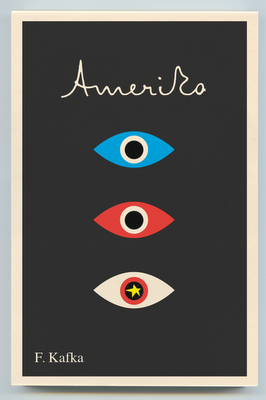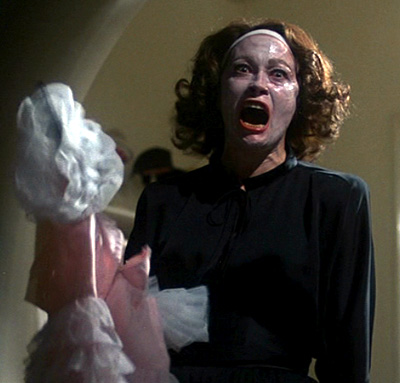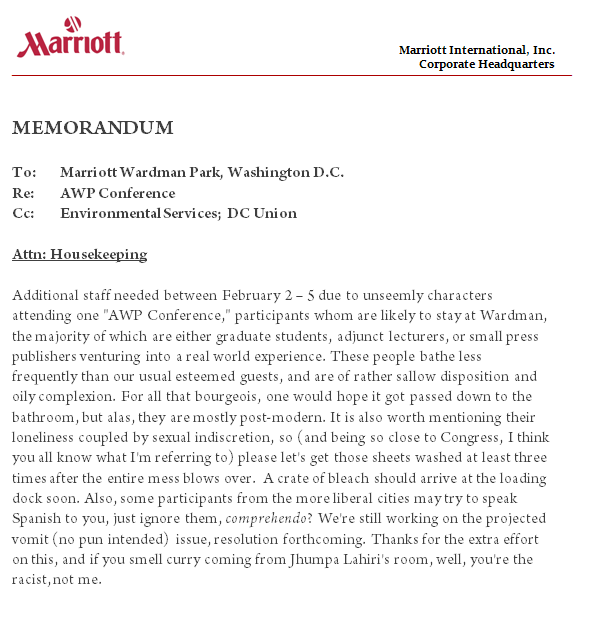Speaking of Anne Carson,

which we were doing at some point in the last 10 or so posts, there’s a prose poem of hers from Plainwater that makes me want to die.
On Waterproofing
Franz Kafka was Jewish. He had a sister, Ottla, Jewish. Ottla married a jurist, Josef David, not Jewish. When the Nuremburg Laws were introduced to Bohemia-Moravia in 1942, quiet Ottla suggested to Josef David that they divorce. He at first refused. She spoke about sleep shapes and property and their two daughters and a rational approach. She did not mention, because she did not yet know the word, Auschwitz, where she would die in October 1943. After putting the apartment in order she packed a rucksack and was given a good shoeshine by Josef David. He applied a coat of grease. Now they are waterproof, he said.
Joan Crawford Says No Rhetorical Questions
All too often, when a writer wants to express some kind of doubt or curiosity or insecurity in their characters, they will invoke a plaintive rhetorical question like, “Ella loved her husband, didn’t she?” or “What was he thinking?” or “This wasn’t really her life, was it?” or “Did that really happen?” These interrogatory moments are a facile way of introducing tension, of letting the audience know an internal debate is taking place, of pandering in really annoying ways, of stating the blatantly obvious. Are rhetorical questions necessary though? I think not. They are lazy writing, using the questions to drive the narrative forward when that same forward motion could be achieved by just telling the damn story and showing that doubt or insecurity in other ways. I have been seeing a rash of rhetorical questions lately. I now often cringe. I am even more troubled when a story begins or ends with a rhetorical question. In these instances, I am left with the impression that the writer is lacking confidence or that the writer is unsure of how to begin or where to end their story. Every one has a different set of rules for writing but I have to insist that two of those unbreakable rules must be: 1) do not use rhetorical questions unless absolutely necessary and 2) never begin or end your story with a question. It’s your writing. You (should) know the answers. Am I the only one who is driven crazy by rhetorical questions?
Wait. See what I just did there?
At work today, I was looking at the wear patterns on my keyboard and I realized that when I type, I strike the space bar with my right thumb. I hardly ever use my left thumb.
Ever Be Filled: An Interview with Matthew Simmons
 Late last year Keyhole Press released a short book of fiction about black metal by Matthew Simmons, The Moon Tonight Feels My Revenge. Given its heavy inspiration, the texts employ a surprising and refreshing mix of thoughts about creation and duress, delivered in the eye that only Mr. Simmons could pull off. Over the past month Matthew kindly answered some q’s about the book.
Late last year Keyhole Press released a short book of fiction about black metal by Matthew Simmons, The Moon Tonight Feels My Revenge. Given its heavy inspiration, the texts employ a surprising and refreshing mix of thoughts about creation and duress, delivered in the eye that only Mr. Simmons could pull off. Over the past month Matthew kindly answered some q’s about the book.
* * *
BB: How did this book begin? Was it your intention specifically to write a book about black metal, or did a specific story come first?
MS: I wrote a couple of one-man black metal band pieces for my blog a while back. (I think I was just writing about black metal bands and then noticed that all the ones I liked and wanted to write about were made up of one guy.) When I got together with Keyhole for the collection coming out next year, Peter asked if I had something shorter, a couple of stories that weren’t going to be in that collection, that we could gather and publish in a little minibook. I had a few, and I decided to use the short black metal pieces as a gathering principle and as little breaks between longer stories that, though not explicitly about one man black metal bands, felt like cousins to them. The three full stories in the book feature three individuals who isolate or world build or reject collaboration.
2006 Updike interview re: Nabokov (and other things)
Lila Azam Zanganeh: I read that you weren’t a great fan of Ada.
John Updike: I thought the book was [coughs]—sorry I think I may be losing my voice.
Lila Azam Zanganeh: No problem.
Nabokov on Collaboration
(from the Foreword to Lolita: A Screenplay):
By nature I am no dramatist; I am not even a hack scenarist; but if I had given as much of myself to the stage or the screen as I have to the kind of writing which serves a triumphant life sentence between the covers of a book, I would have advocated and applied a system of total tyranny, directing the play or the picture myself, choosing settings and costumes, terrorizing the actors, mingling with them in the big part of guest, or ghost, prompting them, and, in a word, pervading the entire show with the will and art of one individual–for there is nothing in the world that I loathe more than group activity, that communal bath where the hairy and slippery mix in a multiplication of mediocrity.
Gerhard Richter on Writing

“The idea that art copies nature is a fatal misconception. Art has always operated against nature and for reason.”
“Surely you don’t think that a stupid demonstration of brushwork, or of the rhetoric of painting and its elements, could ever achieve anything, say anything, express any longing.”
“I never worked at painting as if it were a job; it was always out of interest or for fun, a desire to try something.”
“I have to have a mental picture, an image, to start. I never reach this image, but it’s good to begin with it.”
“Form is all we have to help us cope with fundamentally chaotic facts and assaults. Formulating something is a great start. I trust form, trust my feeling or capacity to find the right form for something. Even if that is only by being well organized. That too is form.”
“Strange though this may sound, not knowing where one is going, being lost, being a loser, reveals the greatest possible faith and optimism, as against collective security and collective significance. To believe, one must have lost God; to paint, one must have lost art.”
“I want to leave everything as it is. I therefore neither plan nor invent; I add nothing and omit nothing. At the same time, I know that I inevitably shall plan, invent, alter, make and manipulate. But I don’t know that.”
“I don’t create blurs. Blurring is not the most important thing: nor is it an identity tag for my pictures. When I dissolve demarcations and create transitions, this is not in order to destroy the representation, or to make it more artistic or less precise. The flowing transitions, the smooth, equalizing surface, clarify the content and make the representation credible (an alla prima impasto would be too reminiscent of painting, and would destroy the illusion).”
“When I first painted a number of canvases grey all over I did so because I did not know what to paint, or what there might be to paint: so wretched a start could lead to nothing meaningful. As time went on, however, I observed differences of quality among grey surfaces, and also that these betrayed nothing of the destructive motivation that lay behind them. The pictures began to teach me. By generalizing a personal dilemma, they resolved it. Destitution became a constructive statement; it became relative perfection, beauty, and therefore painting.”
“How could one be in this world without feeling dismayed by it? Even if one paints flowers and gingerbread.”
“Talk about painting: there’s no point. By conveying a thing through the medium of language, you change it. You construct qualities that can be said, and you leave out the ones that can’t be said but are always the most important.”
“It is hard, say, to cross out six different numbers on a Lotto ticket in such a way that the arrangement looks convincing. And yet the sequence that emerges after the numbers are drawn seems entirely right and credible in every way.”
Q: What painters have you learned from?
A: “From every one that I know.”
“What I’m attempting in each picture is nothing other than this.. to bring together in a living and viable way, the most different and the most contradictory elements in the greatest possible freedom.”



